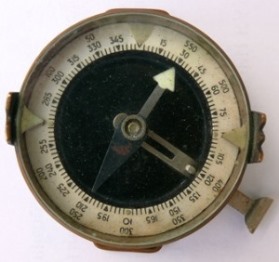 Before the invention of the compass, ancient mariners knew to use the sun and the North Star to chart their course across oceans. They were reliable and constant allies.
Before the invention of the compass, ancient mariners knew to use the sun and the North Star to chart their course across oceans. They were reliable and constant allies.
But when storm clouds blanketed the sky, and those guides were most needed, the sailors were at the mercy of the winds and the waves, with no point of reference beyond their own dead reckoning. It’s not surprising that many lost their way.
Speechwriters can lose their way too. It’s easy enough to be blown off course by a long-winded story, a joke that falls flat or a confusing example, but at least it’s clear what the problem is. You can see what you need to fix.
It’s all the more insidious, when it’s an exciting story, a hilarious joke or a fascinating example that leads you astray. For all too often, the story is in there because it’s exciting. The joke is in there because it’s hilarious. The example is in there because it is fascinating. And none of them are there because they advance, illuminate or reinforce the point you are trying to make.
You may have the audience leaning forward in their seats, or clutching their sides in laughter, but you’re left with a vague sense that you are off course and not really getting your message across.
When that happens, go back to your compass; the simple, clear, one-sentence statement that sums up your entire speech or presentation.
Some call it a “foundational phrase”, a “statement of purpose” or an “axiom of assignation”, …………… OK, I made that last one up.
I simply call it your message. It’s the one point that you most want your audience to hear. It’s the one idea you want to plant in their minds. When they’ve forgotten everything else you said, it’s the one thing you want them to remember,
And it’s the only compass you’ll ever need to determine what you should put in your speech and what you need to cut out.
If that exciting story doesn’t demonstrate the validity of your message, cut it out. If that hilarious joke doesn’t also make the point you are trying to convey, cut it out. If that fascinating example doesn’t reinforce your purpose, cut it out.
The ancient mariners had to rely on intuition and hope to sail in stormy seas, but you have a compass – your message – to guide you.







{ 0 comments… add one now }